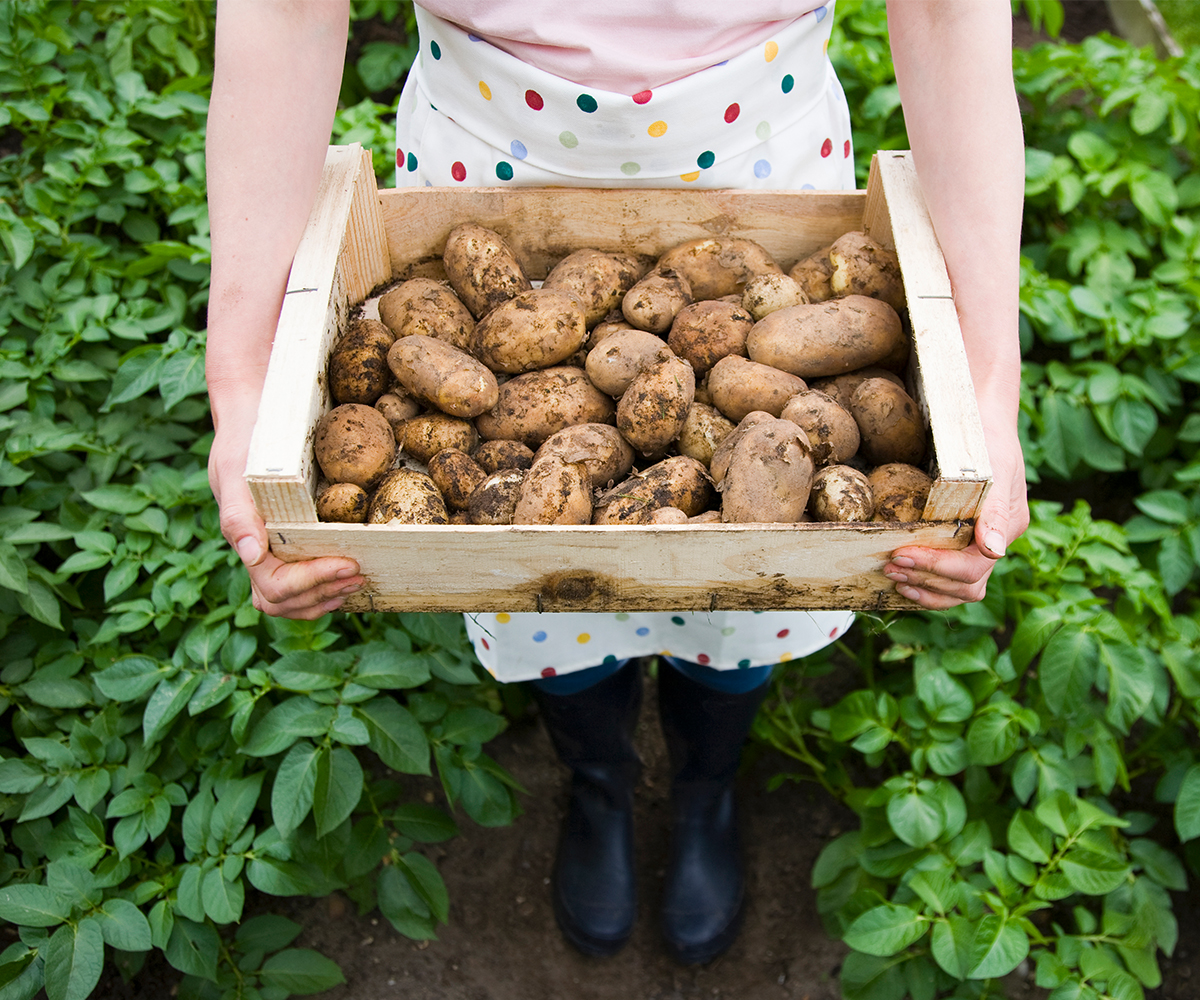There’s been a lot of buzz lately around the nightshade family, with some saying that they make conditions like arthritis, inflammatory bowel disease and autoimmune diseases worse.
But before you swear off spuds entirely, let’s take a look at the evidence.
You may be familiar with the term ‘nightshades’ through the toxic species, deadly nightshade. But it’s just one plant in the large Solanaceae family, which encompasses more than 2000 varieties of plants.
While we don’t eat many of the plants in this family, those that are edible have been considered staple foods for hundreds of years. Among the most commonly consumed nightshade foods are potatoes, tomatoes, eggplant, capsicum and chillies.
Even condiments like paprika, tomato sauce and salsa contain nightshades.

Is solanine the the root of the problem?
Much of the controversy around nightshades centres around the alkaloid solanine.
Solanine is toxic in high concentrations, and is one of the glykoalkaloids that make deadly nightshade poisonious, and green potato leaves, sprouts and stems toxic.
When it comes to our health, it’s thought that a build-up of this bitter-tasting chemical can have pro-inflammatory properties for some individuals, triggering arthritic swelling, pain and stiffness.
While nightshades such as potatoes can contain trace amounts of solanine, there’s no research to support this claim. In fact, a 2010 study published in The Journal of Nutrition found that inflammation and DNA damage was reduced in healthy men who ate yellow or purple potatoes – both nightshade vegetables – for six weeks.

Or is it lectins that are causing uspet?
Many nightshades, however, don’t produce solanine and contain vital vitamins and minerals, such as fibre, iron, potassium, vitamins B1 and B6, and vitamin C.
Tomatoes are also rich in lycopene, which may improve inflammation, while eggplants are included in the Mediterranean diet, a diet often recommended for its anti-inflammatory properties.
You may have also heard that nightshades are problematic because of lectins, which are proteins that bind carbohydrates together. Lectins have been shown to increase autoimmune symptoms, by contributing to leaky gut syndrome.
One study published in the British Journal of Nutrition found that lectins may play a role in rheumatoid arthritis onset by compromising the intestinal barrier. However, this was only shown in those who already had a genetic risk and the study didn’t specifically focus on nightshade lectins.
It has also been said that lectins are defence mechanisms that plants produce to stop them from being eaten, and so eating them provokes an inflammatory response. This is the basis of the Lectin-free Diet, a diet advocated by a US cardiologist, Steven Gundry.
Steven says that humans weren’t intended to eat foods with lectins, and eliminating them from our diets can decrease inflammation, boost weight loss and improve our health.
Along with nightshades, the diet also vetoes high-lectin foods like grains, legumes, out-of-season fruit and conventionally raised meat and poultry.

Should we be eating night shades, or not?
While lectins can cause gastro issues when eaten raw – such as eating too many uncooked beans – high-lectin foods, like quinoa, are usually cooked, while those foods we eat raw, like tomatoes, contain low amounts.
Lectins are also easily broken down during the cooking process, and peeling and de-seeding nightshades is said to further reduce lectin levels.
If you’re healthy and haven’t experienced any adverse reactions to nightshades, there’s no reason to avoid them.
However, if you have an autoimmune condition or believe you may be sensitive to nightshades, you could do an elimination diet and evaluate any changes in your symptoms.
Should your symptoms improve when you avoid them, it may be a good idea to speak to a registered dietitian, who can then help you craft a diet that won’t have you missing out on key nutrients. And keep in mind that factors like overdoing physical activity, starting or stopping medications, and hormonal changes may be the culprit behind worse symptoms.
But otherwise, if you’re a fan of mashed potatoes or Caprese salad, good news: you can happily dig in without worry.


